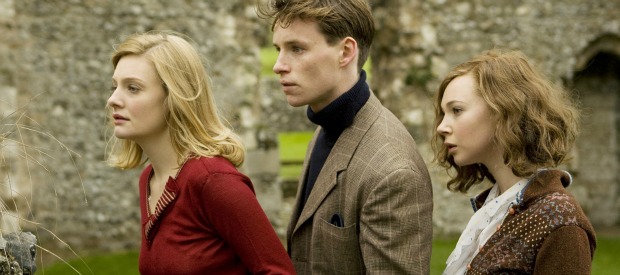Glorious 39
Poliakoff has made his most recent step up to feature film one of the most dramatic, harrowing tales of the year. It is a shame then that what makes this film most enjoyable is also what dampens its brilliance.
Plot summary
The adopted daughter of a privileged British politician uncovers a family secret in the weeks leading up to World War II.

Stephen Poliakoff’s return to the big screen has not been a timid one. Predominantly a TV writer, Poliakoff has made his most recent step up to feature film one of the most dramatic, harrowing tales of the year. It is a shame then that what makes this film most enjoyable is also, when applied too heavily, what dampens its brilliance.
Set around a wealthy, influential MP’s family as the country is on the cusp of entering a war with Germany for the second time, the story centres around the adopted daughter Anne (Romola Garai, Atonement) and her intuitive suspicions surrounding the death of family friend, and overly vocal advocator of the war on Hitler, Hector (David Tennant).
Anne suspicions are rewarded when she stumbles upon a vinyl recording of Hector desperately trying to reason with a group of mysterious interrogators. Discovering that there are men in the secret service who are actively trying to keep Britain from going to war and are willing to strike a deal with Hitler to safe guard Britain’s culture and way of life, Anne attempts to discover the truth, although she has no real idea of what she would do with it.
The tension in the film is tremendous. Much of this is due to the family itself whose seemingly cheery disposition post-Hector, and continually through Anne’s slow descent into understandable paranoia, is eerie to say the least. Bill Nighy acts as the forever comforting Father, a grounding influence for Anne as she gets herself into more and more trouble. The dynamic between the family and Anne is an often seen one; as Anne slowly unravels the truth there are, quite conveniently, moments in which she is made to seem crazy and thus the family become patronizing and disbelieving of Anne’s suspicions. The somewhat clichéd aspect of this dynamic can be forgiven, however, as it adds such a huge amount of tension to all of Anne’s actions but as the film goes on the family’s issues are somewhat predictable.
Thrilling though a lot of the film is, the same devices used to create this tension are overextended and the film, which is supposedly a realist drama, becomes rather silly (take the young boy Walter’s odd habit of popping into scenes and scaring Anne, such scenes are like a bad horror film except instead of a decapitated ghost child it is a slightly rotund boy in World War Two era shorts and blazer looking a touch perturbed). Bill Nighy’s overly soft speech even gets a bit tiresome after a while.
Overall the film is fairly enjoyable albeit slightly jarring due to the odd combination of realist drama with moments of overkill thrill. There are scenes which will have the heart racing a bit but it’s a shame that the dramatic integrity doesn’t remain throughout. Romola Garai, however, gives a remarkably dynamic performance and is very watchable as our harrowed heroine. Poliakoff could have made this story develop through Garai into more than just a war time conspiracy thriller and into a story about an adopted girl finding a new identity. This aspect of the film seems somewhat overlooked, leaving you wondering why the main character has to be adopted in the first place. Ostensibly, the only reason for such a choice is that it makes her appear more likely to disobey her family and appear the odd one out.
Whatever Poliakoff was thinking, he just doesn’t quite pull it off. Prepare yourself for the last frame however, as it could well be up there for cheesiest ending ever.











COMMENTS